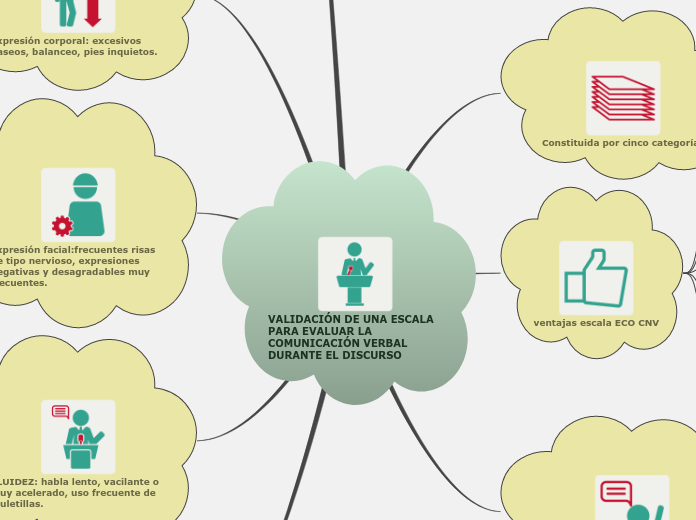por Carmen Rendón hace 5 años
628
VALIDACIÓN DE UNA ESCALA PARA EVALUAR LA COMUNICACIÓN VERBAL DURANTE EL DISCURSO

por Carmen Rendón hace 5 años
628

Ver más
Type in the name of the novel and movie you are going to compare and contrast.
Example: Great Expectations.
Use point-by-point organization in the body section to present the characteristics briefly stated in the thesis.
This means that if you use this draft to write a compare and contrast paper, each characteristic will be introduced in a separate paragraph.
How is the movie different from the novel?
Type in a short explanation. Use 'like', 'same as' or 'similar' for comparison, and 'unlike', 'differ from' and 'although' for contrasting.
How is the novel different from the movie?
Type in the answer. Use 'like', 'same as' or 'similar' for comparison, and 'unlike', 'differ from' and 'although' for contrasting.
The introduction provides background information for both the book and the movie.
Create a thesis statement in which you briefly compare and contrast the book and the movie.
Characteristic
Which are the differences between the book and the movie?
Think of at least 3 differences. Type them in.
Examples regarding Great Expectations
Which are the similarities between the book and the movie?
Type them in. Example: Great Expectations the book and the movie have very similar plots.
Type in the name of the main character.
This has to be the same for both the book and the movie.
Is the action in the movie set in the same place?
Where is it set? Example: The action in Great Expectations (1946) by David Lean has the same setting as in the book.
In the book, where does the action take place?
Example: The action in Great Expectations the book takes place in 19th century England, London and Kent.